Pauline Julien, intimate and political
Pascale Ferland
2018
| 77 min 39 s
Selections and Awards
Public Prize - Feature LengthFestival de cinéma de la ville de Québec 2018
Official SelectionRendez-vous du cinéma québécois 2019
Le Grand PrizeVues sur mer 2019
Pauline Julien would have been 90 years old in 2018. Twenty years after her death, the latest documentary by Pascale Ferland captures the essence of the iconic Quebec singer—a passionately committed and eternally free spirit. Composed of a meticulous selection of interviews, performances and photos drawn from a vast and rich archival collection, Pauline Julien, Intimate and Political follows Julien on a journey from the 1950s to the 1990s. Uncompromising and at times vulnerable, the artist tells her story through personal anecdotes, songs and excerpts from her diary. As the filmmaker sketches the arc of Julien’s extraordinary life, including her relationship with poet Gérald Godin, she offers a memorable lesson in Quebec history, painting a portrait of an inspiring woman whose sovereigntist and feminist ideals continue to resonate today.
Pauline Julien would have been 90 years old in 2018. Twenty years after her death, the singer continues to project the image of an eternally youthful woman, unwaveringly free and passionately in love. The contagious smile, the wild hair—this is how the fiery muse of feminism and sovereignty appears, from one decade to the next, in Pascale Ferland’s new documentary. The filmmaker sketches an original and introspective portrait, plunging at times dreamily into the psyche of a complex woman of deep convictions.
And who better to talk about Pauline Julien than the songwriter, composer and singer herself? Through a meticulous selection of interviews, performances and photos, drawn from a vast and rich archival collection, Pauline Julien, Intimate and Political takes us on a journey from the 1950s through the 1990s, following in the footsteps of this icon of Quebec song. Uncompromising, genuine and intense, the artist tells her story candidly through personal anecdotes, songs, and excerpts from her diary.
As a counterpoint to these archives, Pascale Ferland shifts the camera’s gaze toward visual artist Alan Glass, Pauline’s closest friend, who, with great emotion, reveals lesser-known moments of the singer’s life that he had been privileged to witness. Glass starts by recalling a train trip he took with the singer. Pauline was weeping, staring off at the horizon, and he asked her what was wrong. “This…! This…!” she answered, gesturing at the vastness of the countryside. Referring to the novel L’avalée des avalés [The Swallower Swallowed] by Réjean Ducharme, Glass evokes the endless anguish that drove this deeply sensitive artist.
Born in Trois-Rivières on May 23, 1928, Pauline Julien devoted herself to becoming an actor. In 1950, she married actor Jacques Galipeau, with whom she would have two children. From 1951 to 1957, Pauline lived in Paris, where she acted on stage and sang in cabarets. On the Pont des Arts bridge, we see her sing about love with the cheekiness of Édith Piaf and the elegance of Jeanne Moreau.
After conquering France with songs by Ferré, Vian and Weil, Julien returned to Quebec, where she mesmerized audiences with the lyrics of Vigneault, Langevin and Lévesque, whom she would later introduce to the French. “Pauline Julien is a tough little tree, at once knotty and fragile, who captures you through a spirit and obstinacy that we call presence,” wrote smitten journalist Jacques Godin in Le Nouvelliste in 1961.
After separating from Jacques Galipeau, Julien confirmed in an interview that she had no regrets, as in the song. She also confessed her admiration for Marilyn Monroe and the extreme sensitivity that comes across in her films and songs. “Her death affected me deeply. In a way, I understood her. I understand people who commit suicide…” she confided, as if envisioning her own fate.
Although she consistently refused to be a committed protest singer, the nationalist wave that swept 1960s Quebec—as well as meeting poet Gérald Godin, who would be her husband until death parted them—transformed Pauline Julien. Already an ardent feminist, she would embrace the nationalist cause. Around the same time, she began writing her own songs. Worshipped in Quebec and English Canada alike, she would vigorously defend, in charmingly flawed English, her nationalist convictions to journalist Patrick Watson during a visit to the Queen City.
Even as she recounts Julien’s incredible destiny and love story with Godin, drawing on his poetry and excerpts from their ample correspondence of more than 500 letters, set against a backdrop of jazz that gives the couple a French New Wave allure, Pascale Ferland delivers a vibrant lesson in Quebec history. In so doing, the filmmaker gives new life to the songs immortalized by Pauline. When she sings “Bozo les culottes” in the aftermath of the FLQ and the War Measures Act, in which Julien and Godin became ensnared, or “La danse à Saint-Dilon,” after Godin was elected in the Mercier riding in 1976, or “Mommy,” following the failed 1980 referendum, each song assumes its full meaning.
Claimed by brain cancer in 1994, Gérald Godin left his muse and companion to mourn after 32 years of shared life. Four years later, suffering from degenerative aphasia, she killed herself. “It already seems so very, very long ago. It’s the fate that awaits us all. We will all be forgotten,” Alan Glass declares as he discusses his dear friend’s suicide on October 1, 1998. All of us? Not Pauline, who remains forever young and free in Pascale Ferland’s moving documentary.
A word from the filmmaker
I met Pascale Galipeau, daughter of the late singer Pauline Julien, in 1999, not long after her mother’s death. Stricken with degenerative aphasia, Pauline, an icon of a defining era in Quebec history, had already retired from the public scene years earlier. The idea of a film crossed my mind then, but the family was reeling. I felt it wasn’t the right time, and besides, Pascale had sealed her mother’s archives for 10 years.
In the fall of 2014, I went through my old notebooks, and I rediscovered a few entries about Pauline Julien. Over the decades, memory of her had faded, as it has for most of the players in Quebec’s Quiet Revolution.
So, I reconnected with Pascale to propose a film about her mother. I had no intention of idolizing Pauline, as Pascale feared. Rather, I wanted to underscore her strength of character, independent spirit, and her artistic, social and political commitment. This angle also allowed me to revisit a pivotal time in our history from a woman’s perspective.
Straightaway, Pascale gave me access to career and family archives, excerpts from the diaries Pauline had penned from her early years until her death, as well as love letters between her and Gérald Godin, which spanned some 30 years. How do you approach so much information, both private and public, and shape it into an original film that reflects such a rich life? That was my biggest challenge.
From the outset, I decided not to build my film around current-day interviews, but instead to use archival footage and photographs. Only Alan Glass, whom Pauline had met in her 20s, and with whom she remained friends until her death, occasionally interjects in the story.
Adored in Europe and respected in English Canada, despite her strong positions on feminism, the French language and Quebec independence, Pauline Julien was a ubiquitous presence in the media of the day, and I hoped to find enough material so that she could speak for herself. So, I set about searching a very broad spectrum—in every country involved—to reconstruct her artistic and political journey.
Pauline’s inner world was the hardest part to convey on film. But she had taken up the habit of writing to calm her fears. So, it was through her diaries and correspondence with Gérald Godin that a dreamier, more metaphorical film treatment took shape. This allowed me to explore the evolution of both Pauline’s political struggle and, on a much more personal level, her battle with illness. Her lover, Gérald Godin, was claimed by a brain tumour at age 56, shortly after Quebec’s first referendum on independence, on October 12, 1994. It was at this trying time that her own illness, degenerative aphasia, became known, a condition Pauline had long kept secret. After witnessing the failure of the second referendum in 1995 and the waning of the idea of Quebec independence that followed, Pauline, gradually deprived of words, grew weaker, and committed suicide on October 1, 1998.
This daunting project has resulted in a highly personal film. Not just because it was conceived free of any constraints, but because I had the honour of getting to better know Pauline Julien, a woman whose defence of a more just and inclusive Quebec inspires and resonates strongly across generations.
Trailer
Promotional Materials
Team
Pascale Ferland
Director
Photo
Photo : Anna Lupien
Johanne Bergeron
Producer
Photo
Photo : Michel La Veaux
Colette Loumède
Executive Producer (NFB)
Photo
Photo : NFB
Images
Loading...
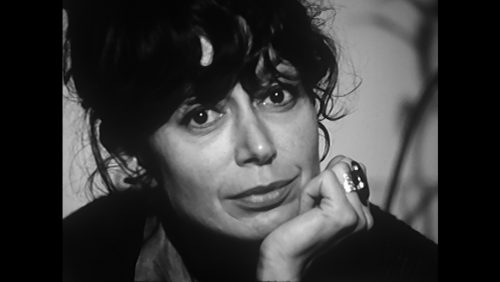
Download
Loading...
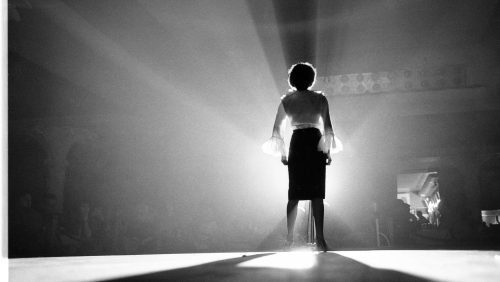
Download
Loading...
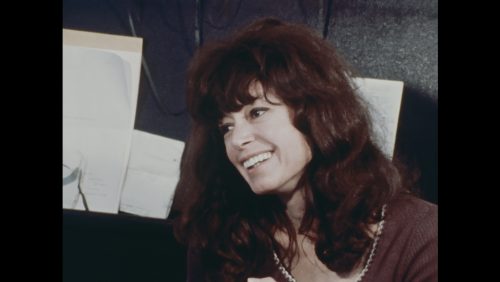
Download
Loading...
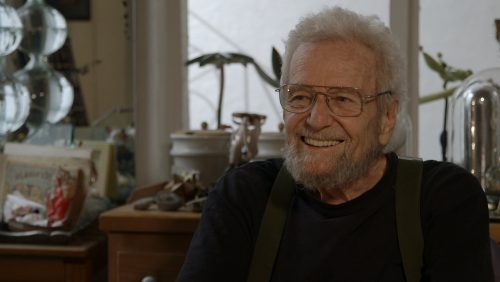
Download
Loading...
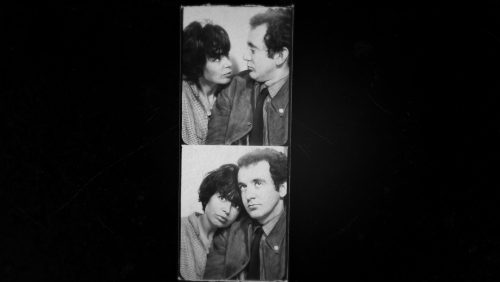
Download
Loading...
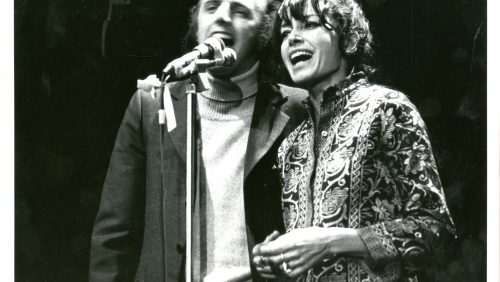
Download
Loading...
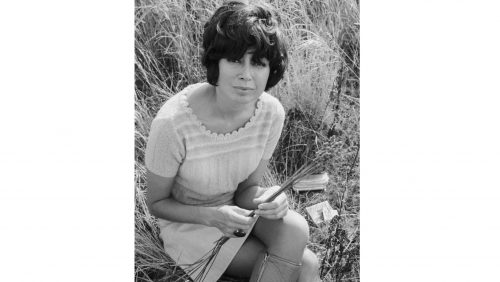
Download
Loading...
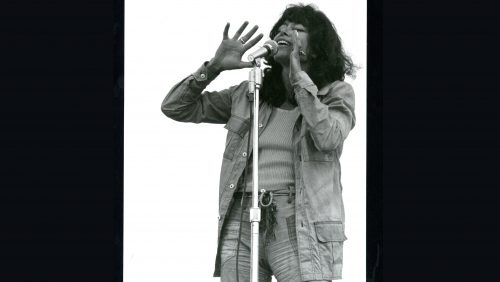
Download
Loading...
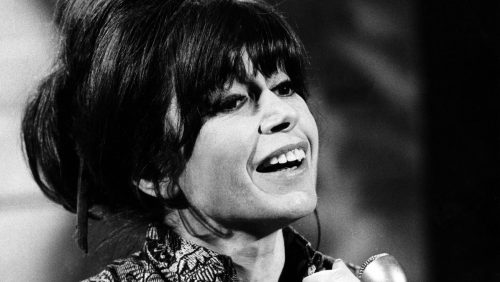
Download
Loading...
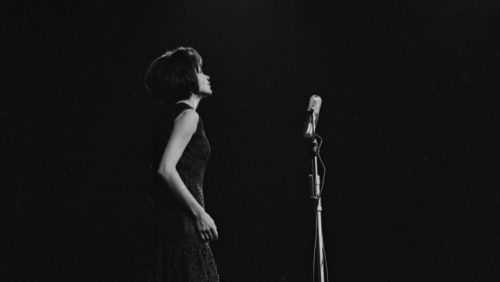
Download
Loading...
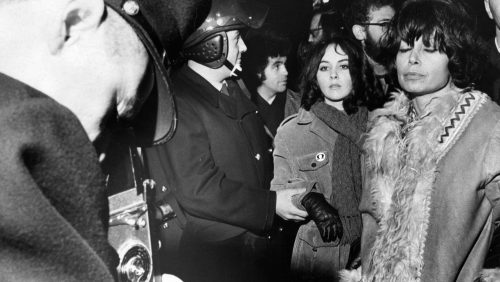
Download
Loading...
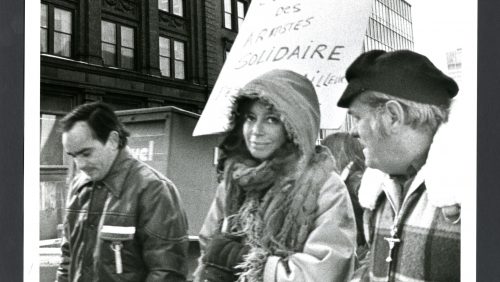
Download
Loading...
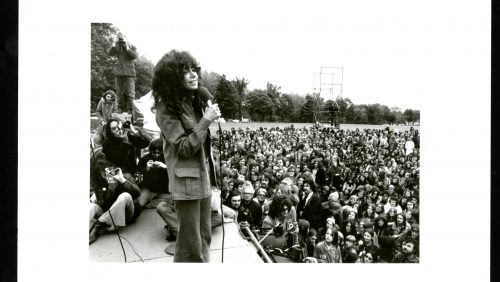
Download
Loading...
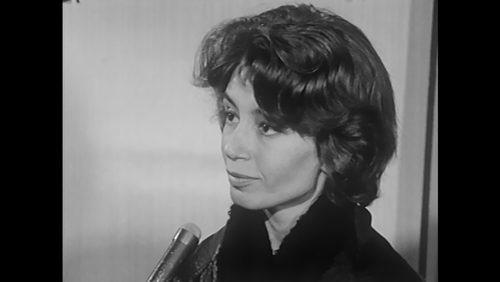
Download
Loading...
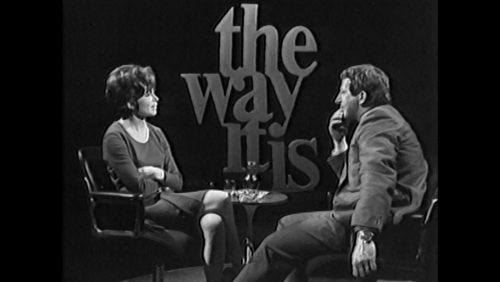
Download
Loading...
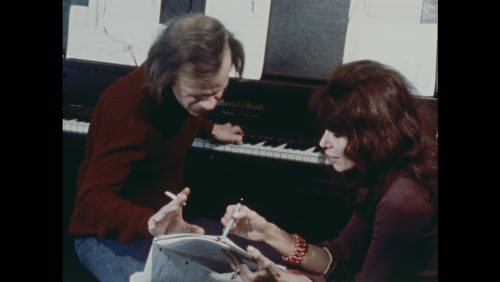
Download
Loading...
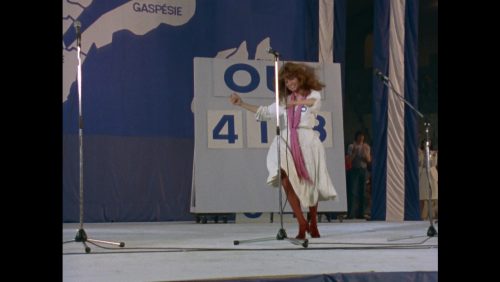
Download
Credits
WITH
ALAN GLASS
RESEARCHED, WRITTEN AND DIRECTED BY
PASCALE FERLAND
MEXICO UNIT
IMAGE
ERNESTO PARDO
SOUND RECORDING
FEDERICO GONZALEZ
PRODUCTION ASSISTANTS
CRISTOBAL JASSO AGUILAR
FRANCESCO JAVIER REYNA LUCERO
LINE PRODUCER
MÉLANIE LASNIER
ADDITIONAL CAMERA
PASCALE FERLAND
EDITING
RENÉ ROBERGE
EDITING ASSISTANT
MARIE-ÈVE TALBOT
TECHNICAL SUPPORT – EDITING
ISABELLE PAINCHAUD
PATRICK TRAHAN
PIERRE DUPONT
TITLE DESIGN AND INFOGRAPHICS
MÉLANIE BOUCHARD
ASSISTED BY
JACQUES BERTRAND SIMARD
CYNTHIA OUELLET
ARCHIVE RESTORATION
SYLVIE MARIE FORTIER
ONLINE EDITOR
DENIS PILON
SOUND DESIGN
OLIVIER CALVERT
RE-RECORDING
JEAN PAUL VIALARD
MUSIC AND NARRATIVE RECORDINGS
GEOFFREY MITCHELL
ORIGINAL MUSIC
JEAN-PHI GONCALVES
MUSICIANS
DRUMS PERCUSSION PIANO VIBRAPHONE
JEAN-PHI GONCALVES
DRUMS
KEVIN WARREN
BARITONE SAXOPHONE BRASS ARRANGEMENTS
JEAN-FRANÇOIS OUELLET
TROMBONE
JEAN-NICOLAS TROTTIER
BASS
MATHIEU DÉSY
NARRATIONS
DOMINIQUE QUESNEL
MARC BÉLAND
EXTRACTS
JOURNAUX INTIMES DE PAULINE JULIEN
1957-1996
© PASCALE AND NICOLAS GALIPEAU
CORRESPONDENCE BETWEEN
PAULINE JULIEN AND GÉRALD GODIN 1962-1994
© PASCALE AND NICOLAS GALIPEAU
POEM BY GÉRALD GODIN
«PORTAGE»
SARZENES 1983
© ÉCRITS DES FORGES
MUSICAL EXCERPTS
À NOS AMOURS
Author… MAURICE FANON
Composer…YVONNE SCHMITT
TARA ENTERTAINMENT LTD.
WARNER CHAPPELL MUSIC FRANCE
AU HASARD
From the film FABIENNE SANS SON JULES
Author-composer…PIERRE LÉTOURNEAU
L’INDUSTRIE MUSICALE INC.
LA LUNE
Author-composer…LÉO FERRÉ
ÉDITIONS MERIDIAN
MATHIEU FERRÉ ET CIE
JACK MONOLOY
Author-composer…GILLES VIGNEAULT
ÉDITIONS … LE RIDEAU ROUGE (SACEM)
UNIVERSAL MUSIC PUBLISHING MGB FRANCE
From the film
FABIENNE SANS SON JULES
Composer… AL BACULIS
© PROPRIÉTÉ D’AL BACULIS
LA CHANSON DIFFICILE
Author-composer… GEORGES DOR
LES ÉDITIONS GAMMA LTÉE
GEORGES DOR
BOZO-LES-CULOTTES
Author-composer…RAYMOND LÉVESQUE
LES ÉDITIONS GAMMA LTÉE
LA MANIC
Author-composer… GEORGES DOR
LES ÉDITIONS GAMMA LTÉE
ENGAGEMENT
Author… MARCEL SABOURIN
Composer… ROBERT CHARLEBOIS
LES ÉDITIONS GAMMA LTÉE
LES EXPÉRIENCES INC.
COMME JE CRIE, COMME JE CHANTE
Author…GILBERT LANGEVIN
Composer… FRANÇOIS COUSINEAU
ÉDITORIAL AVENUE
LES ÉDITIONS PEACE OF MIND
LE TEMPS DES VIVANTS
Author… GILBERT LANGEVIN
Composer… FRANÇOIS COUSINEAU
ÉDITORIAL AVENUE
LES ÉDITIONS PEACE OF MIND
L’ÂME À LA TENDRESSE
Author… PAULINE JULIEN
Composer… FRANÇOIS DOMPIERRE
LES PRODUCTIONS FRANÇOIS DOMPIERRE
LES ÉDITIONS NICOLAS ENRG.
From the film
LES MAINS NETTES
Composer… MAURICE BLACKBURN
© NFB
LA DANSE À SAINT-DILON
Author-composer… GILLES VIGNEAULT
LES ÉDITIONS DU VENT QUI VIRE
MOMMY
Author-composer… MARC GÉLINAS
MARCO DISQUES INC. GILLES RICHER
JE CHERCHE MON CHEMIN
Author-composer… ANNE SYLVESTRE
© ANNE SYLVESTRE (SODRAC)
From the show
VOIX PARALLÈLES
Composer… BERNARD BUISSON
LE TEMPS QUI PASSE
Author… BORIS VIAN
Composer… ANDRÉ WILLY HODEIR
LES ÉDITIONS MAJESTIC
With the authorization of UNIDISC MUSIC INC.
VISUAL RESEARCH
SYLVIA MEZEI
CLAIRE BOURBONNAIS
PHOTOS AND FOOTAGE RESEARCH
AND RIGHTS CLEARANCE
SYLVIA MEZEI
MUSIC RESEARCH AND RIGHTS CLEARANCE
CLAIRE BOURBONNAIS
ADDITIONAL RESEARCH
PASCALE BILODEAU
PASCALE FERLAND
NFB ARCHIVES
RAGNHILD MILEWSKI
LEA NAKONECHNY
RESEARCH ASSISTANCE
EMMANUELLE LACOMBE
CHRONOLOGY AND DECRYPTION OF CORRESPONDENCE
BETWEEN PAULINE JULIEN AND GÉRALD GODIN 1961-1994
EMMANUELLE GERMAIN
SUBTITLES
ROBERT GRAY, KINOGRAPH
OUR HEARTFELT THANKS TO
PASCALE GALIPEAU
NICOLAS GALIPEAU
ALAN GLASS
JACQUES GODBOUT
FOR THE EXTRACTS FROM HIS FILM FABIENNE SANS SON JULES
© 1964 National Film Board of Canada
WE WOULD ALSO LIKE TO THANK
FRANÇOIS AUGER
ALAIN BADIOU
SIMON BEAULIEU
SANTIAGO BERTOLINO
GABRIEL BOILEAU-CLOUTIER
JÉRÔME BOURQUIN
RICHARD BROUILLETTE
MARIE BERNIER
SYLVAIN CHARBONNEAU
ROBERT CHARLEBOIS
CLAUDE CLOUTIER
FRANÇOIS COUSINEAU
GENEVIÈVE COUSINEAU
FLORIAN DAVEAU
MARCO DE BLOIS
JOËL DENIS
CLÉMENCE DESROCHERS
ANDRÉ ESCOJIDO
CAROL FAUCHER
MARC-ANDRÉ FAUCHER
MAURICE FERRON
LOUISE FORESTIER
ELENA FRACAS
JACQUES GALIPEAU
SIMON GALIERO
JEAN GAGNON
GENEVIÈVE GUAY
JEAN-PAUL GUAY
NADINE GOMEZ
MARIE-CHRISTINE GUITÉ
BENJAMIN HOGUE
MAGALIE HUAULT
ANDRÉE LACHAPELLE
MICHÈLE LALONDE
JEAN PIERRE LANNES
LUCIENNE LOSIER
PIERRE LEFEBVRE
MARIE-PIERRE LESSARD
ANNE MAGNOL
DENISE MARSAN
HUGUES MIGNAULT
GENEVIÈVE ROSSIER
JULIE ROY
NATHALIE SAINT-PIERRE
BRIGITTE SAURIOL
MAUDE SMITH-GAGNON
GUY THOUIN
GILLES VIGNEAULT
PATRICK WATSON
KIM YAROSHEVSKAYA
FRANCINE ALLAIRE AND MICHEL SCHEFFER
BIBLIOTHÈQUE ET ARCHIVES NATIONALES DU QUÉBEC (BAnQ)
AND ALL THOSE WHO WORK TO PRESERVE ARCHIVES AND LIVING HERITAGE. THEIR CONTRIBUTION TO THIS FILM AND TO QUEBEC’S COLLECTIVE MEMORY IS ESSENTIAL AND INVALUABLE.
LEGAL COUNSEL
DOMINIQUE AUBRY
PRESS RELATIONS
NADINE VIAU
MARKETING MANAGER
FRANÇOIS JACQUES
ASSISTED BY
JOLÈNE LESSARD
ADMINISTRATION
SIA KOUKOULAS
PRODUCTION COORDINATORS
CHINDA PHOMMARINH
GABRIELLE DUPONT
ISABELLE LIMOGES
ADMINISTRATIVE ASSISTANT
PASCALE SAVOIE-BRIDEAU
TECHNICAL COORDINATION
MIRA MAILHOT
PRODUCER
JOHANNE BERGERON
EXECUTIVE PRODUCER
COLETTE LOUMÈDE
WITH THE COLLABORATION OF





Media Relations
-
About the NFB
Founded in 1939, the National Film Board of Canada (NFB) is a one-of-a-kind producer, co-producer and distributor of engaging, relevant and innovative documentary and animated films. As a talent incubator, it is one of the world’s leading creative centres. The NFB has enabled Canadians to tell and hear each other’s stories for over eight decades, and its films are a reliable and accessible educational resource. The NFB is also recognized around the world for its expertise in preservation and conservation, and for its rich and vibrant collection of works, which form a pillar of Canada’s cultural heritage. To date, the NFB has produced more than 14,000 works, 7,000 of which can be streamed free of charge at nfb.ca. The NFB and its productions and co-productions have earned over 7,000 awards, including 11 Oscars and an Honorary Academy Award for overall excellence in cinema.